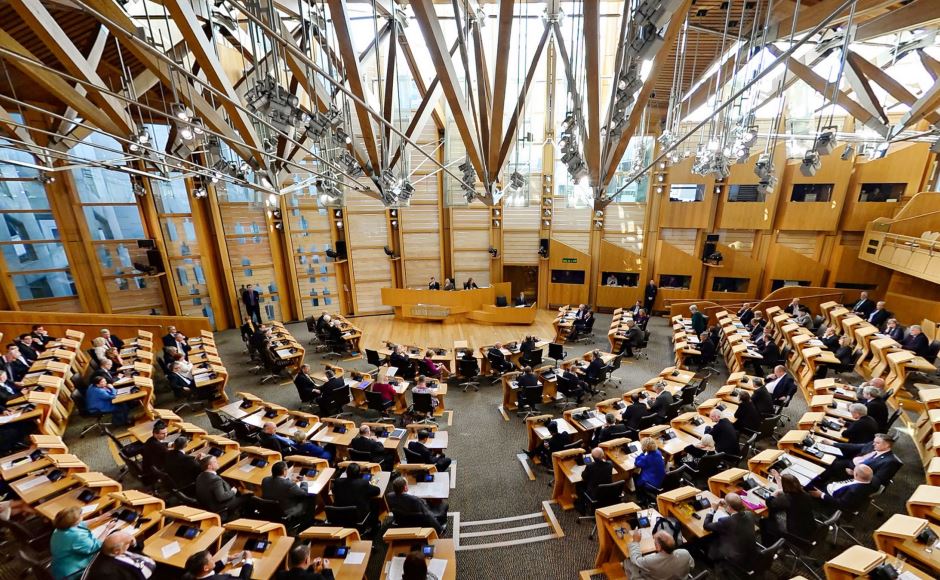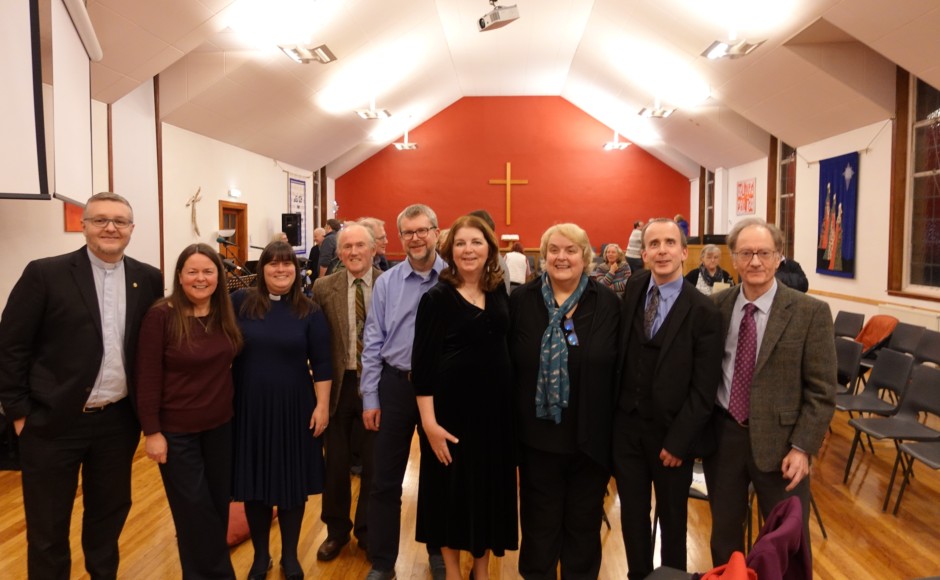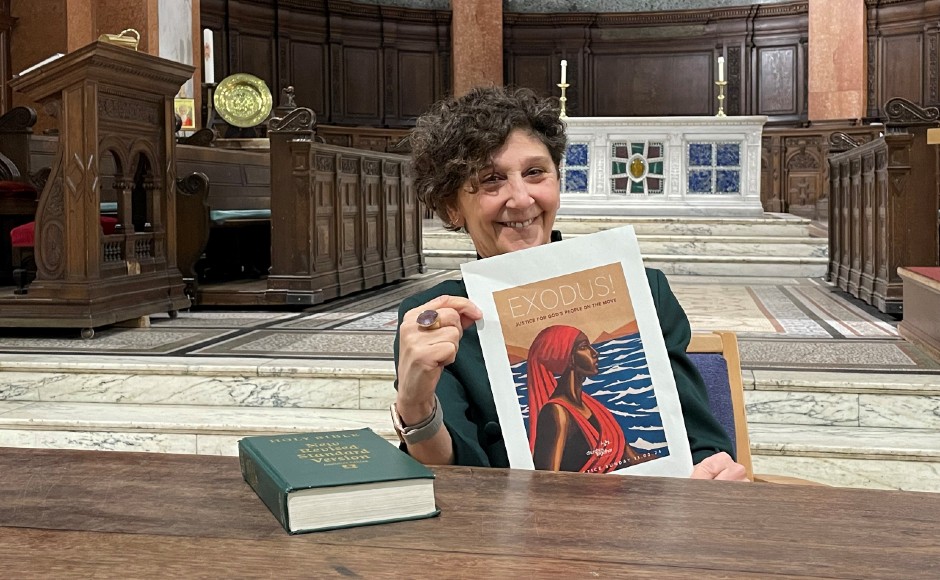Opinion - let's have a conversation about Scotland's devolved tax system
Published on 3 December 2024 3 minutes read
Ahead of a Scottish Government ministerial statement on the Scottish Budget 2025-26 tomorrow, Emma Jackson, leader of the Church's Public Life and Social Justice Programme Group, explains why the time is right to have a conversation about tax transformation in Scotland.
She spoke out after the Church backed the Tax Justice Scotland campaign which is making the case that Scotland has the power to create a system that makes sure wealth is shared, strengthens public services and invests in a cleaner, greener future.
"The Church of Scotland firmly believes that faith communities have a vital role to play in an ongoing public conversation about the relationship between ethics and economic policy to make sure that everyone can live decent and dignified lives.

Congregations across the country work hard to support people on the fringes of society and provide a voice for the voiceless - acting with compassion and pursuing justice. .
Rev Canon Dr Angus Ritchie, Executive Director of the Centre for Theology and Community in London, has written about how tax, in a good system, should be more than a charitable act of redistributing wealth to ameliorate an otherwise unjust economic order.
Rather, a tax system should promote good governance and enable the state to provide a robust and accountable framework for its decisions.
Benefit of all
Civil society can engage and flourish and the fruits of creation can be shared more equitably.
A good tax system would help every citizen to participate more fully in society, in the service of the benefit of all – our near and global neighbours, our environment, and for those generations to come.
As a Christian, I share Angus' view.
There is a clear and present theme that runs throughout the Bible - that everyone should have enough.
Tax systems are a way for us to achieve this.
A sharing of the bounty of resources we are blessed with for the benefit of all.
A just and compassionate taxation system is essential to reducing the growing levels of inequality we have across the UK.
Paying the appropriate levels of tax is part of living out our social obligation akin to loving one's neighbour.
Evidence is mounting that the current UK taxation system is not fit for purpose and many people are not paying taxes in proportion to their wealth and income.
Governments at all levels - UK, Scottish and local authority - are struggling with rising expenditure, the aftermath of COVID, an ageing population, a mental health crisis and a housing emergency.
Society is struggling to raise enough revenue to cover these urgent priorities.
Wider , deeper conversation about tax
Yet the UK remains a wealthy and affluent country with many assets, ranked among the top wealthiest countries in the world in terms of both GDP total and per capita. In property, land, stocks and shares, digital assets there are billions and billions of pounds.
The solution we so often hear about to fix the unbalanced books is growth. By growing the economy, the tax stream will increase but what if our governments can't deliver growth?
Or what if trying to grow the economy places intolerable burdens on our people and the planet?
What if there are different solutions?
This is why the Church of Scotland has joined the campaign ‘Tax Justice Scotland'.
There needs to be a wider, deeper conversation about tax – not just questions about rates and bands, but about the value we need to place on paying tax as responsible citizens.
As a civil society organisation with a presence across the country, the Church of Scotland knows the impact of funding.
Both for projects and services we deliver, or on behalf of those we work with and walk alongside.
We've called on Scottish Government funding to increase the pay of those working in the voluntary social care sector, so they are paid the same as their equivalents in the NHS and public sector.
We have also been advocating for a pilot programme to offer free bus travel for those seeking asylum in Scotland, so people can make essential journeys and travel to churches and other places of worship.
Public values
Asking for more spending without indicating where it could come from is potentially naïve.
As we approach the run up to the next Holyrood election, it is a question I'd ask our politicians to think about.
Twenty years ago, the General Assembly of the Church of Scotland received a report which stated ‘the problem is not the lack of funds but lack of the will to provide the necessary funds.
We can afford it if the will to do so is there.
Christians should be in the vanguard of those working for a change of will in this regard'.
Our economic culture needs to be shaped by public values which promote social cohesion and the common good: compassion and justice."
The Church has produced reports on tax and the economic system.


